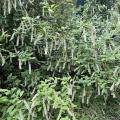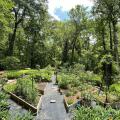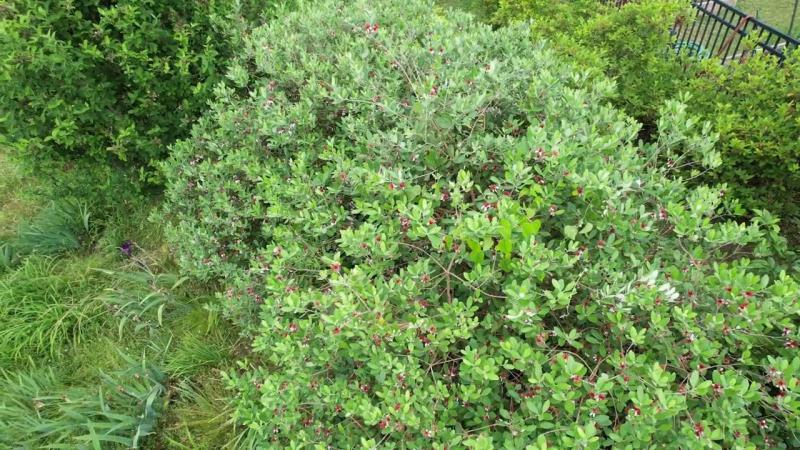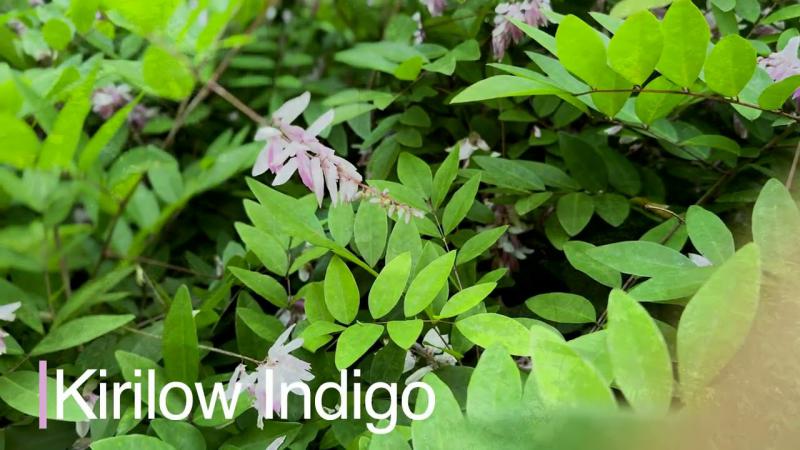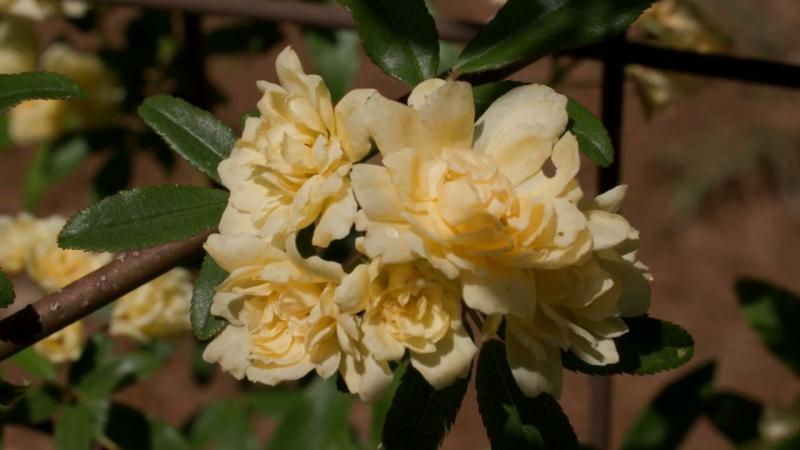Noninsecticidal Methods
Noninsecticidal Insect Management Methods
For every insect pest, there are many different species of predators and parasites that feed on that pest and help keep its population in check. If it were not for these naturally occurring predators and parasites, our gardens would be overrun with insect pests. You, as a gardener, must recognize the importance of this natural control and avoid disrupting it when possible.
Without question, naturally occuring biological control is the single most important method of controlling insect pests.
By their very nature, insecticide treatments are disruptive to biological control because they kill beneficial insects, as well as the pests. This is why you should avoid unnecessary insecticide treatments. Destroying naturally occurring beneficial insects can actually cause pest populations to increase.
However, do not allow a fear of disrupting natural control to keep you from making insecticide applications when they are needed. In the Southern garden, there will be times when pest populations escape natural control and reach damaging levels. Prompt, judicious use of insecticides can control pest populations and help prevent crop damage.
When selecting insecticide treatments, keep in mind that some insecticides are more disruptive of natural control than others. For example, Bt products control only caterpillar pests and are harmless to most beneficial insects, while broad-spectrum insecticides like permethrin are more disruptive. Still, there are times when you will need to use one of the broad-spectrum treatments to obtain control of a particular pest or pest complex.
There are many cultural control practices that can make plants more or less vulnerable to insect attack and/or injury. Healthy, vigorous plants are generally more resistant and more tolerant to damage by insect pests. Consequently, practices that promote good growth and plant health also aid in insect management.
Because many species of insect pests complete several generations per growing season, with populations increasing substantially with each generation, early-planted crops often experience lower insect pressure than late-planted crops. This is especially important with crops like sweet corn, summer squash, and tomatoes.
Many insect pests also reproduce on alternate weed hosts and overmature vegetable plants that are left in the garden. So good sanitation practices, including weed control and prompt removal of plants that have ceased to produce, will help reduce insect populations.
Some varieties of a vegetable are less vulnerable to insect damage than other varieties of the same vegetable. So variety selection also can be an important insect management consideration. These are just a few general examples of how cultural control practices can influence insect populations.
“Hand-picking and foot-stomping” is one type of mechanical control that home gardeners can use successfully. In small plantings, you can control insects by physically removing individual insects or egg masses. Physically washing aphids from plant terminals with spray from a garden hose is another form of mechanical control.
You might also use floating row covers, which prevent insects from being able to attack or deposit eggs on young plants. Collars of wax paper or aluminum foil can protect young transplants from attack by cutworms.
Reflective mulches are another useful mechanical control for certain pests. These are especially effective in preventing thrips from attacking young tomato and pepper plants and spreading virus diseases, particularly tomato spotted wilt virus.
Using plastic mulches instead of organic mulches helps reduce populations of certain pests because the plastic mulch provides less favorable shelter for pests like crickets and slugs. Commercially available pheromone traps or sticky traps also can help you control or monitor certain pest species.
Publications
News
There are a few plants that bring both beauty and function to the landscape, and pineapple guava is one of those rare gems that does it all.
During a recent visit to Paul and Donna Ingram’s garden in Vicksburg, Mississippi, I was inspired by how beautifully they’ve showcased this remarkable plant.
Deciduous plants are those that shed their foliage at the end of the growing season. I recently had the pleasure of seeing the beautiful collection that Warren County Master Gardener Beattie Williams has curated.
While there were several standout selections in her garden, one that immediately caught my eye was Virginia sweetspire. This is a native shrub that offers something beautiful for every season.
The peaceful backyard garden of Beattie Williams in Vicksburg, Mississippi, is a master class in the use of raised beds in a home landscape.



